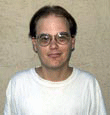This is from Boxoffice.Com, written from Showest by Francesa Dinglasan. Anyway, I thought it was interesting as it seems to talk about many things that are talked about in this forum..O riginally we came here to criticize trailers," renowned film critic Roger Ebert told delegates attending the Wednesday afternoon event at ShoWest, "but the studios wouldn't give us [any] trailers."
A safe decision, it would seem, on the part of Hollywood. After all, while the trademark thumbs-up from the pair can mean extra box-office bucks for a given film, a much dreaded thumbs-down from the reviewers, most famous for their television program "At the Movies With Roger Ebert and Richard Roeper," can equally result in a notable downturn in interest for a particular release.
What Ebert and Roeper said they would offer instead to convention attendees were their opinions and suggestions as to the elements necessary to create the ideal moviegoing experience, or as Roeper phrased it, what would go into the "Ebert and Roeper multiplex."
"Sometimes it's disheartening that the worse thing about the experience is the [actual] movie," said Ebert.
I ronically, though the afternoon's proceedings had been dubbed "Ten Things We Love About the Movie Theatre," Ebert and Roeper's sharp wit and cutting remarks were more appropriate to a list of "Things We Hate About the Cinema." However, that same criticism that had been so feared by the studios was so engagingly and humorously delivered that many exhibitors in the audience felt the event to be the highlight of the entire convention.
Roeper's first targets were the lighting and climate control of theatre auditoriums. He noted that sometimes auditorium lighting had not been dimmed enough, interfering with the audience's ability to see the onscreen picture, while the air conditioning always seemed to be cranked to its coldest setting. "We're not slabs of meat," he joked.
For Ebert, the disappearance of the nation's movie palaces and glorious single-screeners is one of the major tragedies of today's exhibition business. "Save the really big screen," he urged ShoWest delegates. Noting that he understood that the lack of business driven to a theatre with just one auditorium was a major factor in their demise, he underscored the true pleasure of viewing a film on an immense screen. "Around the country, really big screens are being lost," he remarked.
Also on the two critics' list of changes to be made in an ideal world was the idea of senior staff members always being present at a theatre. "I would like to see a higher level of staff, in terms of managers that are there," said Roeper. "On a serious note, if someone in a theatre's acting up, it would be nice if someone [with a level of authority] was there...so that you don't have to act as your own cop."
Ebert added that an experienced or senior-level employee would also be more likely to understand problems that sometimes arise regarding the quality of screen presentation. "I get letters complaining about the boom mic [being visible during a film screening]," he said. "It would be nice if [staff members] who know what 'framing' means are onsite."
A dditionally, Ebert took the very unique stance of advising theatre operators, "I'm going to ask you not to rush headlong into digital cinema." As the first voice in a long time at any exhibition convention to come out supporting celluloid over digital projection, he stated, "Hollywood has not spent one dime studying...how digital images enter the human mind."
"There's a theory that people enter a hypnotic state when watching video," he explained. "It gives a different experience [than watching film]....When you replace celluloid, you may be giving [movie patrons] an experience that they didn't know they'd be getting."
Quite passionate about the issue, Ebert said that when the inevitable conversion to digital took place, people were "going to lose celluloid magic." What people would get instead, he insisted, were images that would be "cold, but technically perfect."
Other suggestions proposed by the two critics included ensuring that the projection bulb is turned up, as "diminishing it does not preserve the life of the bulb"; bringing back Saturday morning "kiddie shows," which Ebert believes "will get kids into a moviegoing habit in a good way"; and dedicating a few auditoriums in a multiscreener to art or specialty fare, or as Roeper described it, to put "the word 'mutli' into multiplex." "The same [major Hollywood release] plays over and over again [on different screens in the same theatre]," he observed. "We envisioned and hoped that there would be space for films like 'Memento.'"
Additional recommendations were implementing a "no kids policy" because, noted Roeper, "Sometimes parents can't be trusted not to bring kids" to films inappropriate for them to watch, and offering a healthier variety of concessions. "Is it possible to sell anything at the refreshment stand that won't kill?" asked Ebert.
Widely applauded by ShoWest delegates was Ebert's vocal abhorrence of cellular phones and his plea for "cell phone blocking" in theatre auditoriums.
Conventioneer enthusiasm for Ebert's suggestion, however, seems more theoretical than practical, as evinced by the countless Nokia and Motorola chimes that continue to ring at ShoWest events.

 Home
Home
 Products
Products
 Store
Store
 Forum
Forum
 Warehouse
Warehouse
 Contact Us
Contact Us




 Printer-friendly view of this topic
Printer-friendly view of this topic






 Tristan
Tristan









